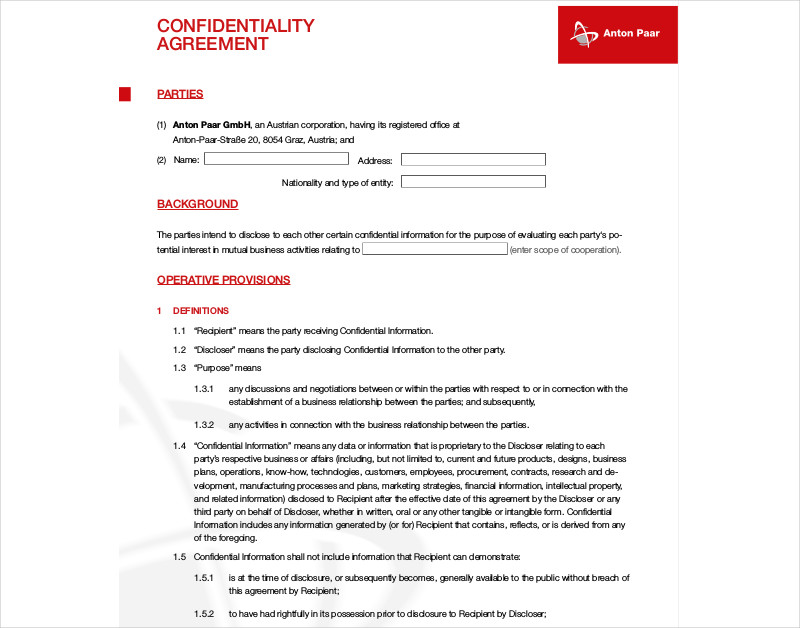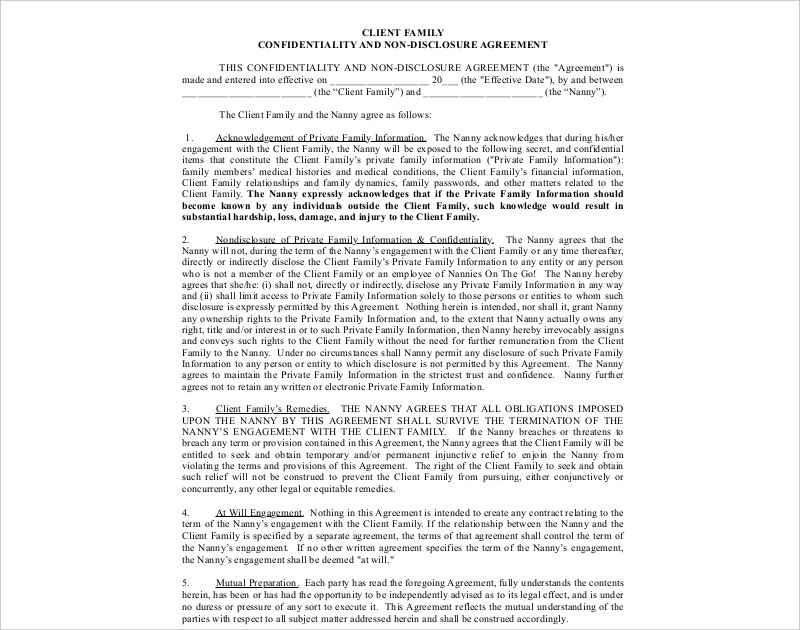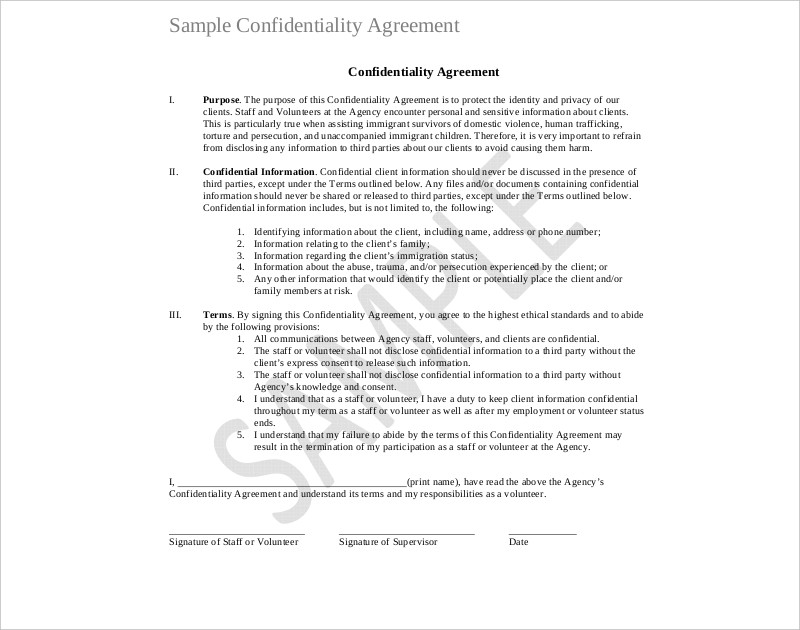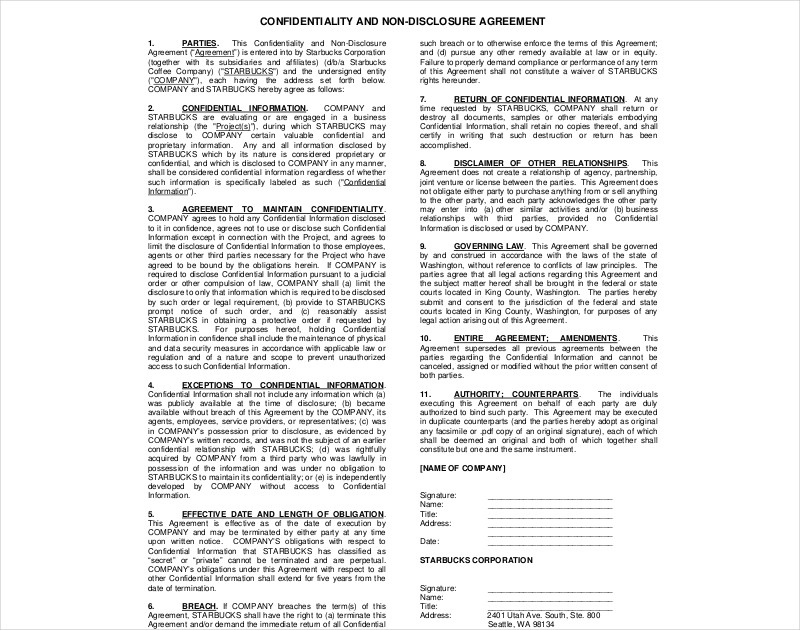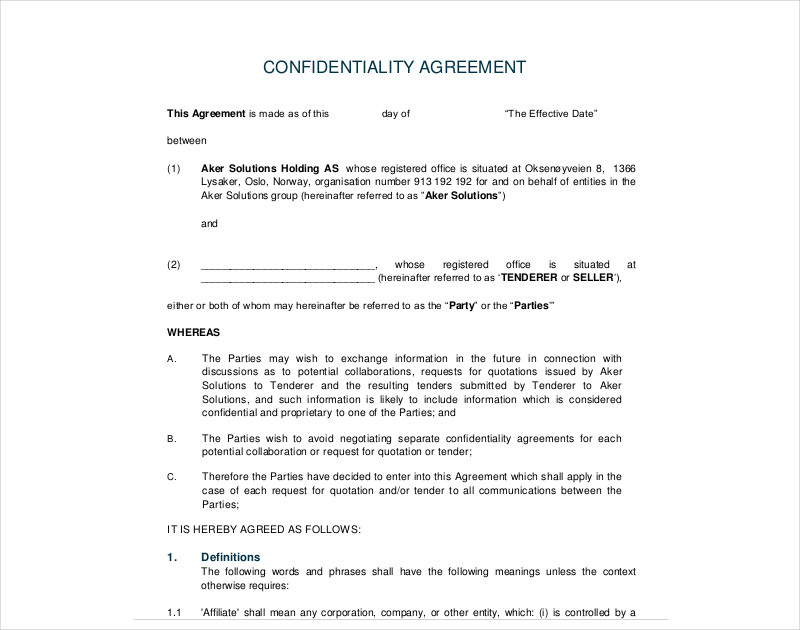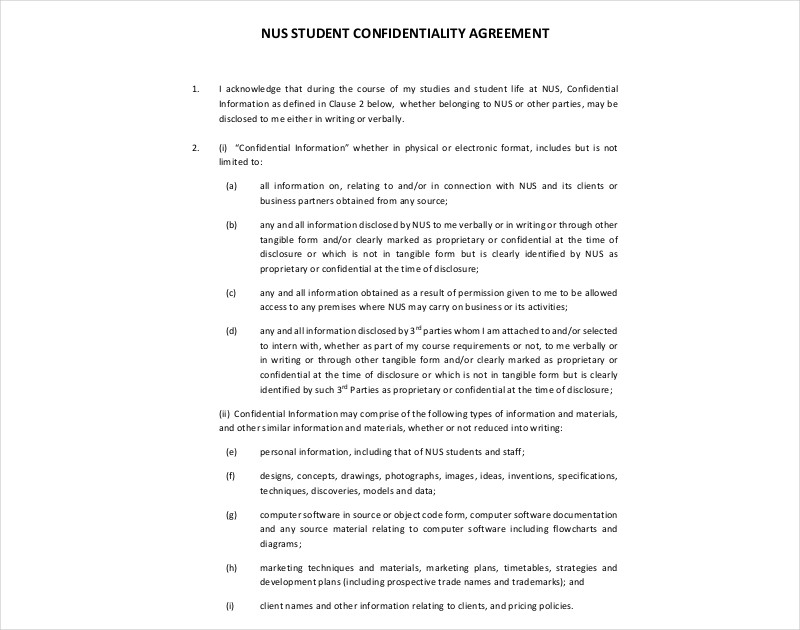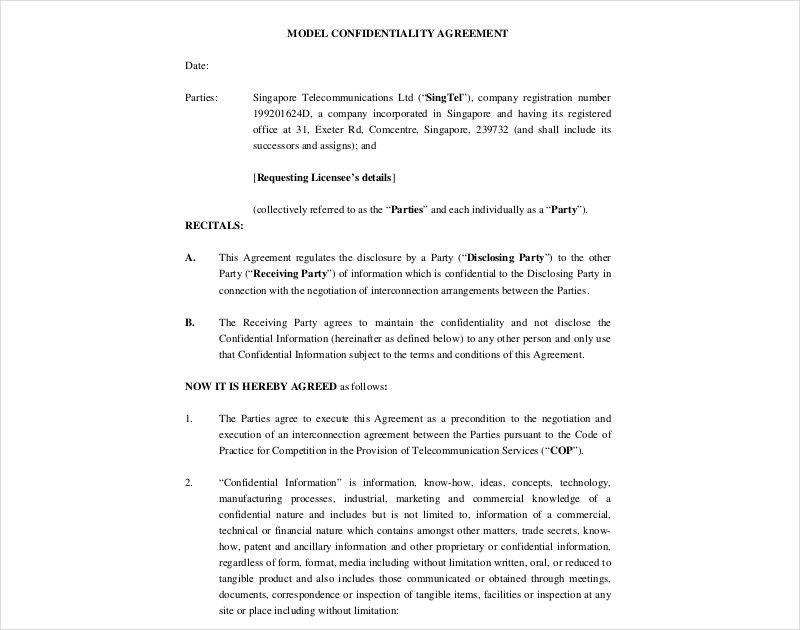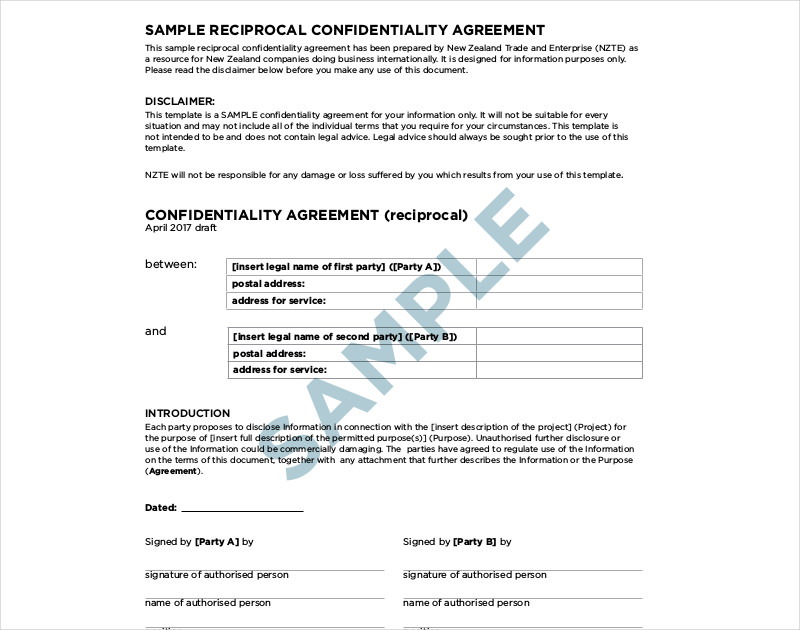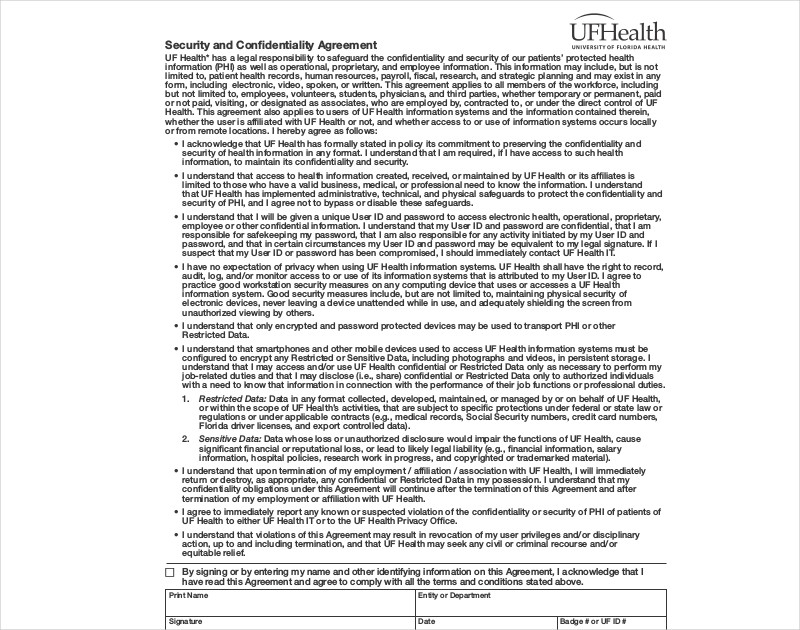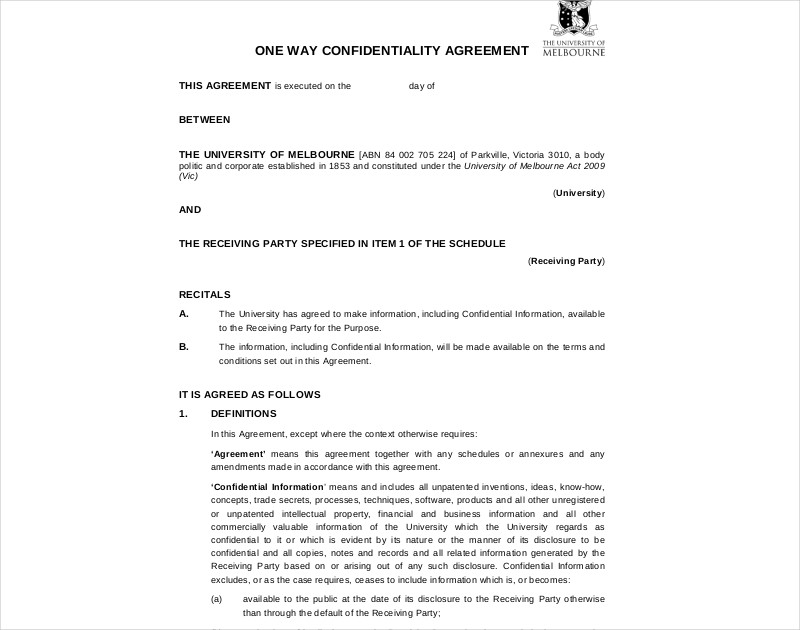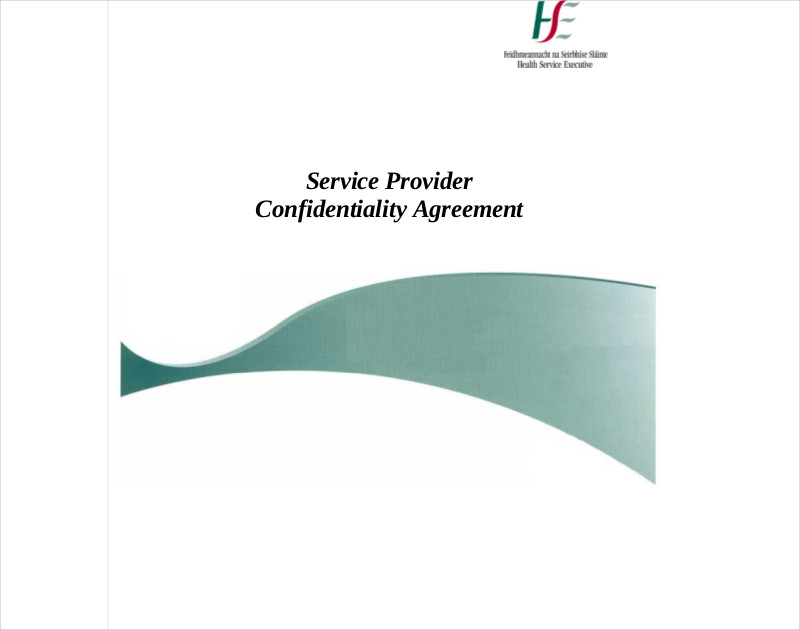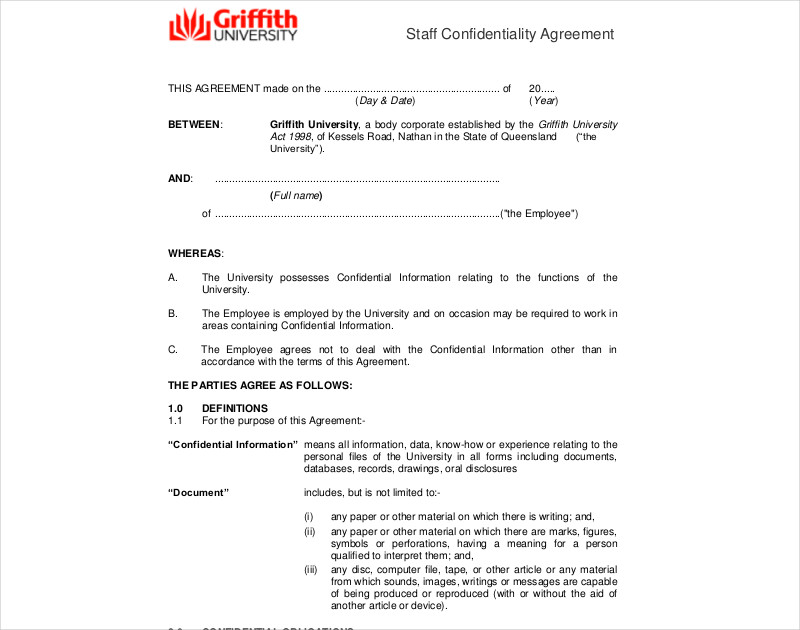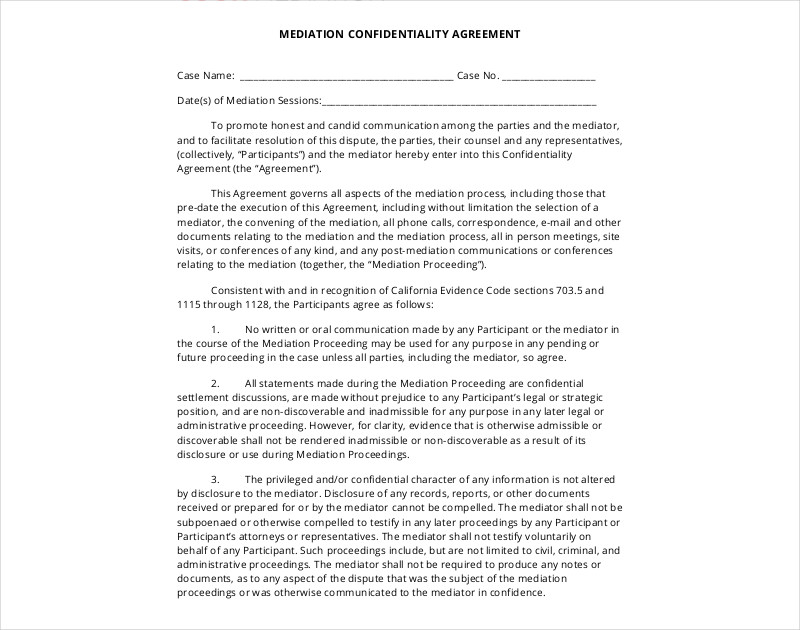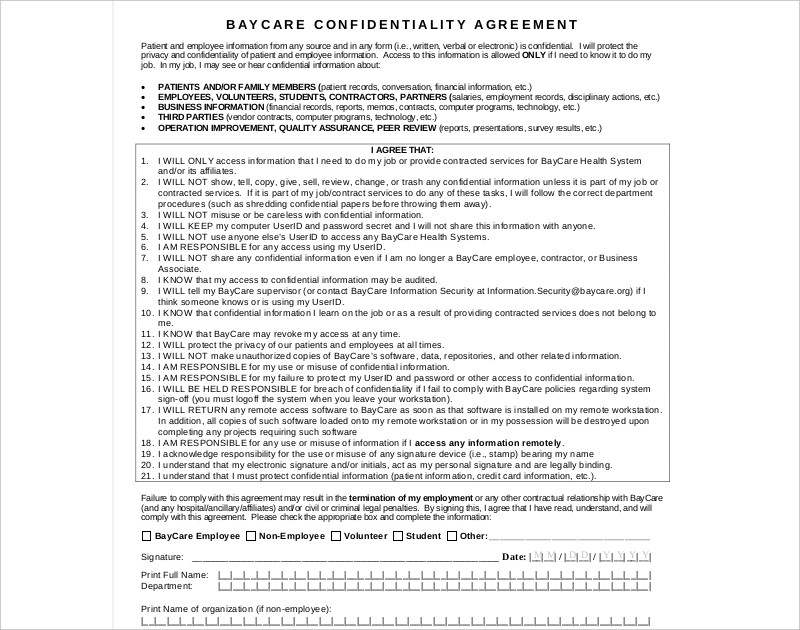25+ Confidentiality Agreement Examples
Protecting your company’s privacy should be a paramount concern. Many other companies have suffered the terrible effects of having their confidential data leaked, either intentionally or unintentionally. And most of them had a difficult time recovering. The ones responsible for leaking their data are both within and outside their organization, including employees and business partners. You have to safeguard every crucial company information; they’re prized properties. Do that by issuing confidentiality agreement forms.
25+ Confidentiality Agreement Examples & Samples
Basic Confidentiality Agreement Example
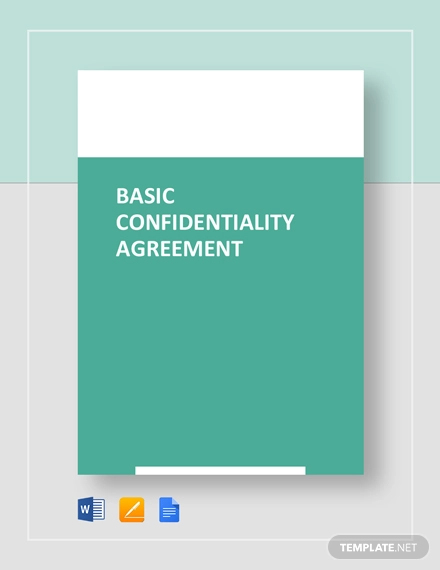
Employment Confidentiality Agreement Example
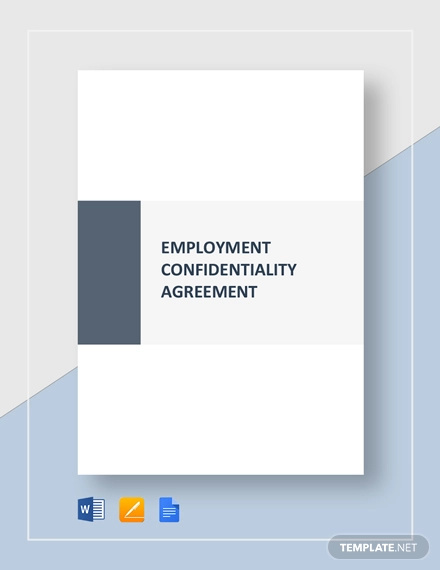
HR Confidentiality Agreement Example
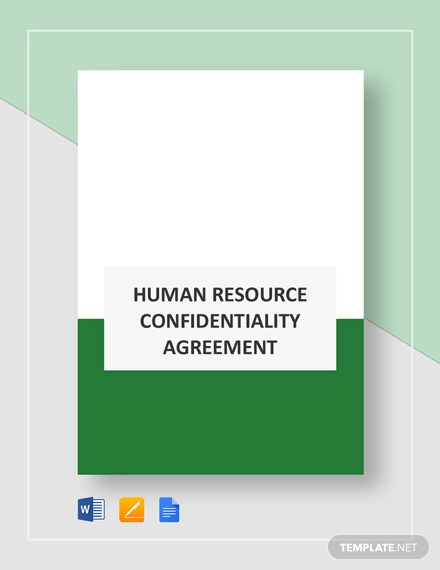
Church Confidentiality Agreement Example
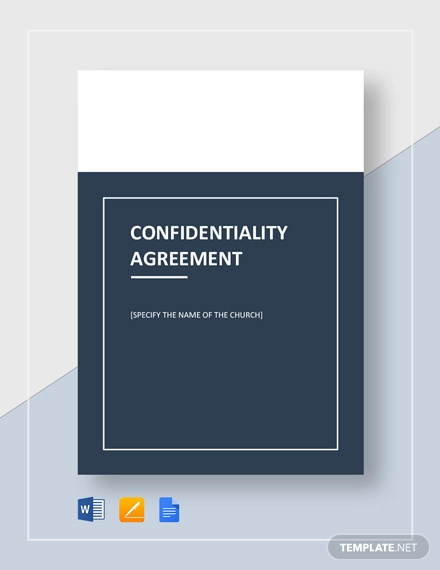
Restaurant Human Resources Confidentiality Agreement Example
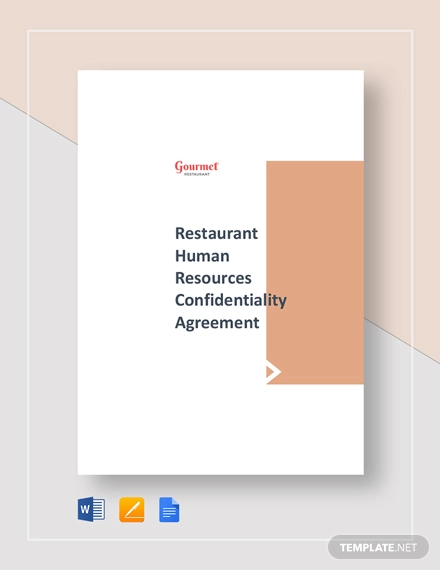
Employee Confidentiality Agreement Example
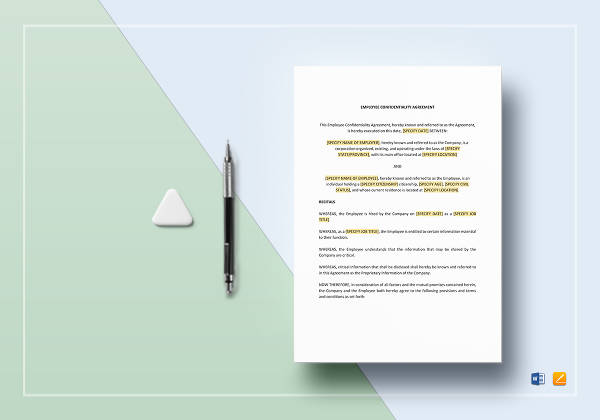
Basic Confidentiality Agreement
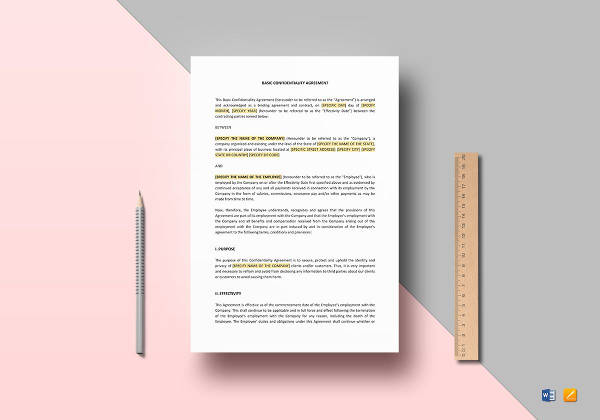
Data Processing Services Confidentiality Agreement
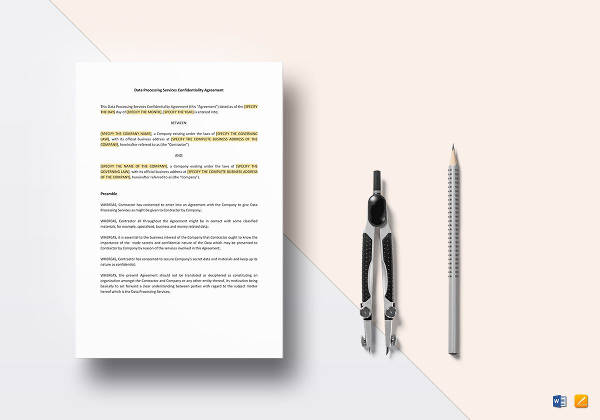
Mutual Confidentiality Agreement
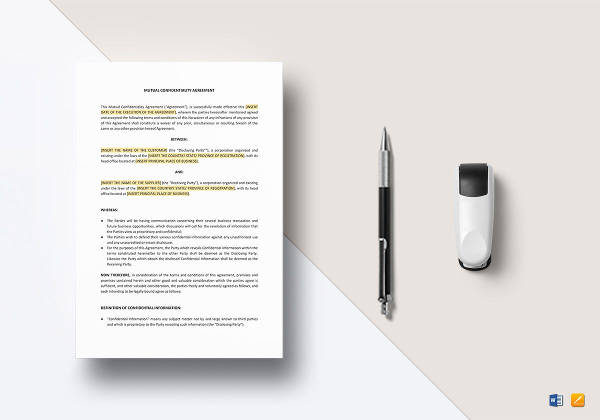
Customer Confidentiality Agreement
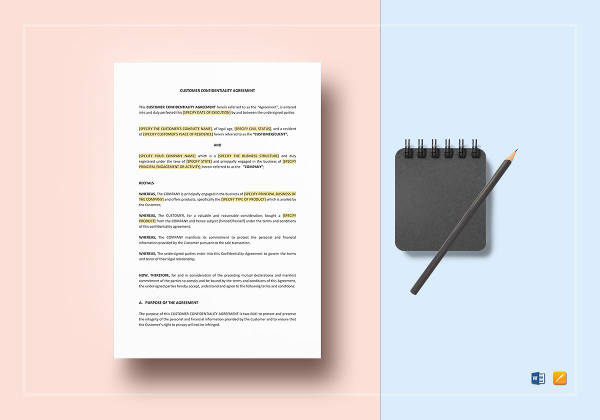
Confidentiality Agreement Sample
Family Confidentiality Agreement
Printable Confidentiality Agreement
Confidentiality and Non-Disclosure Agreement
Employee Confidentiality Agreement
Confidentiality Agreement Example
Student Confidentiality Agreement
Model Confidentiality Agreement
Reciprocal Confidentiality Agreement
Security and Confidentiality Agreement
One Way Confidentiality Agreement
Service Provider Confidentiality Agreement
Staff Confidentiality Agreement
Mediation Confidentiality Agreement
Mutual Confidentiality Agreement
Baycare Confidentiality Agreement
What Is a Confidentiality Agreement?
A confidentiality agreement, also a non-disclosure agreement or NDA, is a document that legally binds an individual to follow company confidentiality and privacy policies. This legal document prevents an individual from disclosing confidential data to unauthorized entities or using them in any way. The individual will face legal sanctions if he or she does so. It’s as good as committing theft.
How to Create a Confidentiality Agreement
According to Statista, more than 164.8 million confidential records were exposed due to data breaches in 2019. One probable factor why it reached that number is because of digital technology. With digital technology, people can leak data easily and quickly. Emails containing critical information are very vulnerable to that. With those in mind, protecting your company’s data is more important than ever. Issue data confidentiality agreements or non-disclosure forms to those people you’ll share your data with. Refer to this short guide in making a confidentiality agreement.
Step 1: Indicate the Involved Parties
It should be clear in the agreement who’s obliged to follow confidentiality terms. So, state the name of the individual to who you’ll grant access to your private company data. He or she could be a subordinate employee, supervisor, manager, executive, business partner, or anyone outside the organization.
Step 2: Define the Confidential Data or Information
Next, you have to define what the data or information is about. Explain their importance and impact on your company. In this part of the agreement document, you have to let the involved parties understand why they must keep the data private.
Step 3: Indicate the Agreement’s Duration
It’s important to indicate how long the agreement will stand. It’s up to your privacy needs on how long you should set the agreement’s duration; it could be a year, two years, three years, and beyond. And don’t forget to state that the agreement takes effect immediately. However, in most cases, confidentiality agreements don’t have an end date, especially if the protected data are trade secrets. They can only be terminated if the company issuing them decides to do so.
Step 4: Establish the Sanctions
It wouldn’t be a confidentiality agreement without the sanctions. It’s the sanctions that prompt the involved parties to abide by the agreement. State them clearly on the document one by one. Make sure that they’re easy to understand.
FAQs
What are prime examples of confidential information?
Here are some prime examples of confidential information:
- Unpublished financial reports
- Customer or client information
- Trade secrets
- Pricing strategies
- Marketing strategies
- Product formulas
Should a confidentiality agreement be signed?
Yes, the parties involved must sign a confidentiality agreement. It’s an indication that they acknowledge it and will follow its terms and conditions.
What are the various types of confidentiality?
These are the other types of confidentiality:
- Commercial confidentiality
- Medical confidentiality
- Legal confidentiality
- Banking confidentiality
- Counseling confidentiality
- Client confidentiality
Privacy is one of the foundations of your business. Leaving your company data unprotected is like inviting wolves to attack your sheep. Secure your company’s privacy at all times. Make sure of that by downloading our Confidentiality Agreement Templates and NDA Templates.



